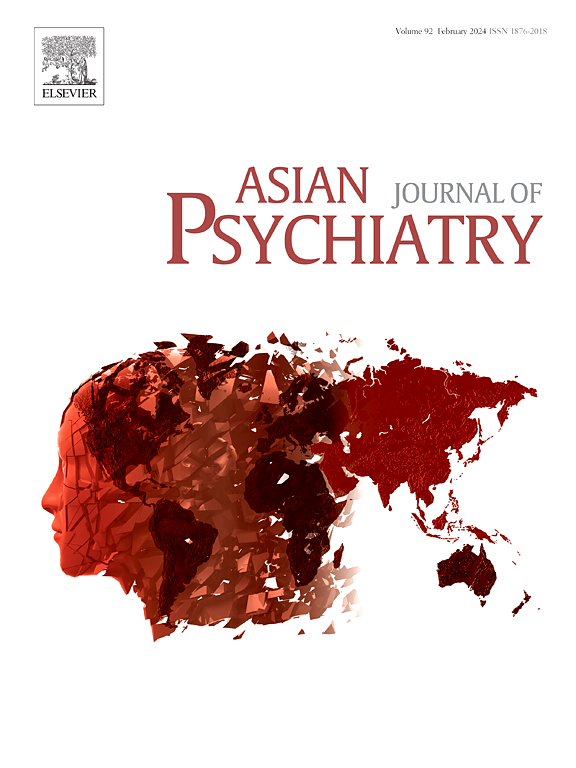认为双相情感障碍是一种症状而不是一种疾病
IF 3.8
4区 医学
Q1 PSYCHIATRY
引用次数: 0
摘要
双相情感障碍(BAD)是一项重大的全球健康挑战,传统上被归类为一种以躁狂和抑郁发作为特征的独特精神疾病。最近的研究结果表明,BAD可能不是一种单一的疾病,而是情绪失调背后更广泛、相互关联的病理生理过程的一种表现。这项研究提出了一种范式转变,将BAD概念化为一种反映共同病理生理机制的共同症状,而不是一种离散的疾病。通过对7000多名BAD患者和33.7万名对照者的系统性疾病关联研究(DWAS),该研究确定了多器官系统的广泛合并症,包括神经、代谢、胃肠道、心血管和免疫相关疾病。这些合并症表明更深层次的病因联系,而不是巧合的联系。这项研究表明,BAD是一个更大的跨诊断连续体的一部分,支持了对精神病理学维度模型的日益重视。这种重新定义提供了重要的临床优势,包括提高诊断准确性,针对常见病理生理途径的综合干预,以及更有效的患者管理。通过超越传统的诊断界限,这种方法促进了精确精神病学,并为未来的研究奠定了基础,重点是共享生物标志物和治疗目标,最终改善了情绪障碍患者的临床护理和结果。本文章由计算机程序翻译,如有差异,请以英文原文为准。
Thinking bipolar disorder as a symptom rather than a disease
Bipolar affective disorder (BAD), a major global health challenge, has traditionally been classified as a distinct psychiatric condition characterized by episodes of mania and depression. Recent findings suggest that BAD may not represent a singular disease but rather a manifestation of broader, interconnected pathophysiological processes underlying mood dysregulation. This study proposes a paradigm shift, conceptualizing BAD as a shared symptom reflecting common pathophysiological mechanisms rather than a discrete disorder. Through a systematic disease-wide association study (DWAS) of over 7,000 BAD patients and 337,000 controls, this study identified a wide range of comorbid conditions across multiple organ systems—neurological, metabolic, gastrointestinal, cardiovascular, and immune-related disorders. These comorbidities indicate a deeper etiological connection rather than coincidental associations. This study suggests that BAD is part of a larger, transdiagnostic continuum, supporting the growing emphasis on dimensional models of psychopathology. This reconceptualization offers important clinical advantages, including enhanced diagnostic accuracy, integrated interventions targeting common pathophysiological pathways, and more effective patient management. By transcending traditional diagnostic boundaries, this approach fosters precision psychiatry and lays the groundwork for future research focused on shared biomarkers and therapeutic targets, ultimately improving the clinical care and outcomes for individuals with mood disorders.
求助全文
通过发布文献求助,成功后即可免费获取论文全文。
去求助
来源期刊

Asian journal of psychiatry
Medicine-Psychiatry and Mental Health
CiteScore
12.70
自引率
5.30%
发文量
297
审稿时长
35 days
期刊介绍:
The Asian Journal of Psychiatry serves as a comprehensive resource for psychiatrists, mental health clinicians, neurologists, physicians, mental health students, and policymakers. Its goal is to facilitate the exchange of research findings and clinical practices between Asia and the global community. The journal focuses on psychiatric research relevant to Asia, covering preclinical, clinical, service system, and policy development topics. It also highlights the socio-cultural diversity of the region in relation to mental health.
 求助内容:
求助内容: 应助结果提醒方式:
应助结果提醒方式:


